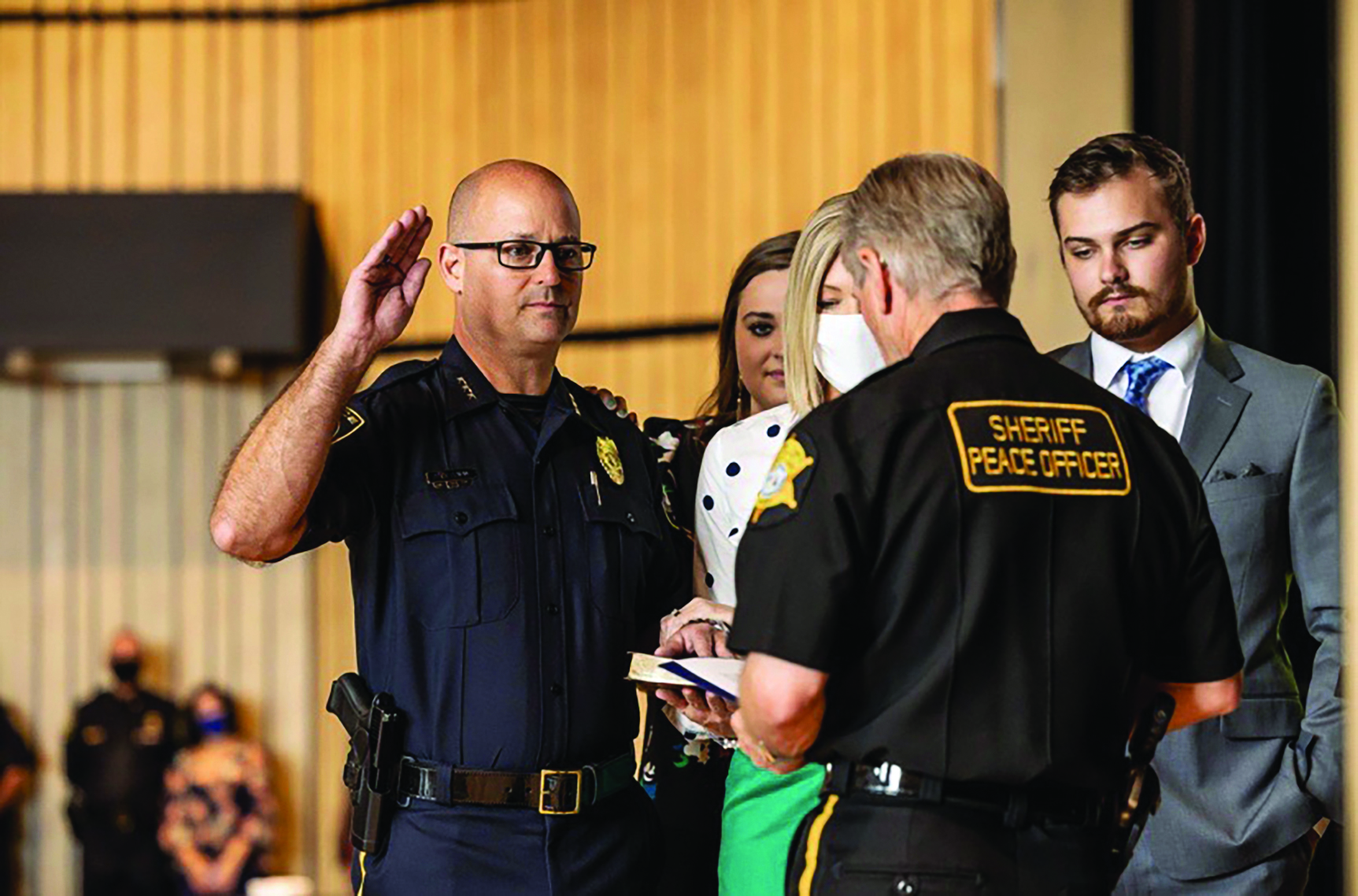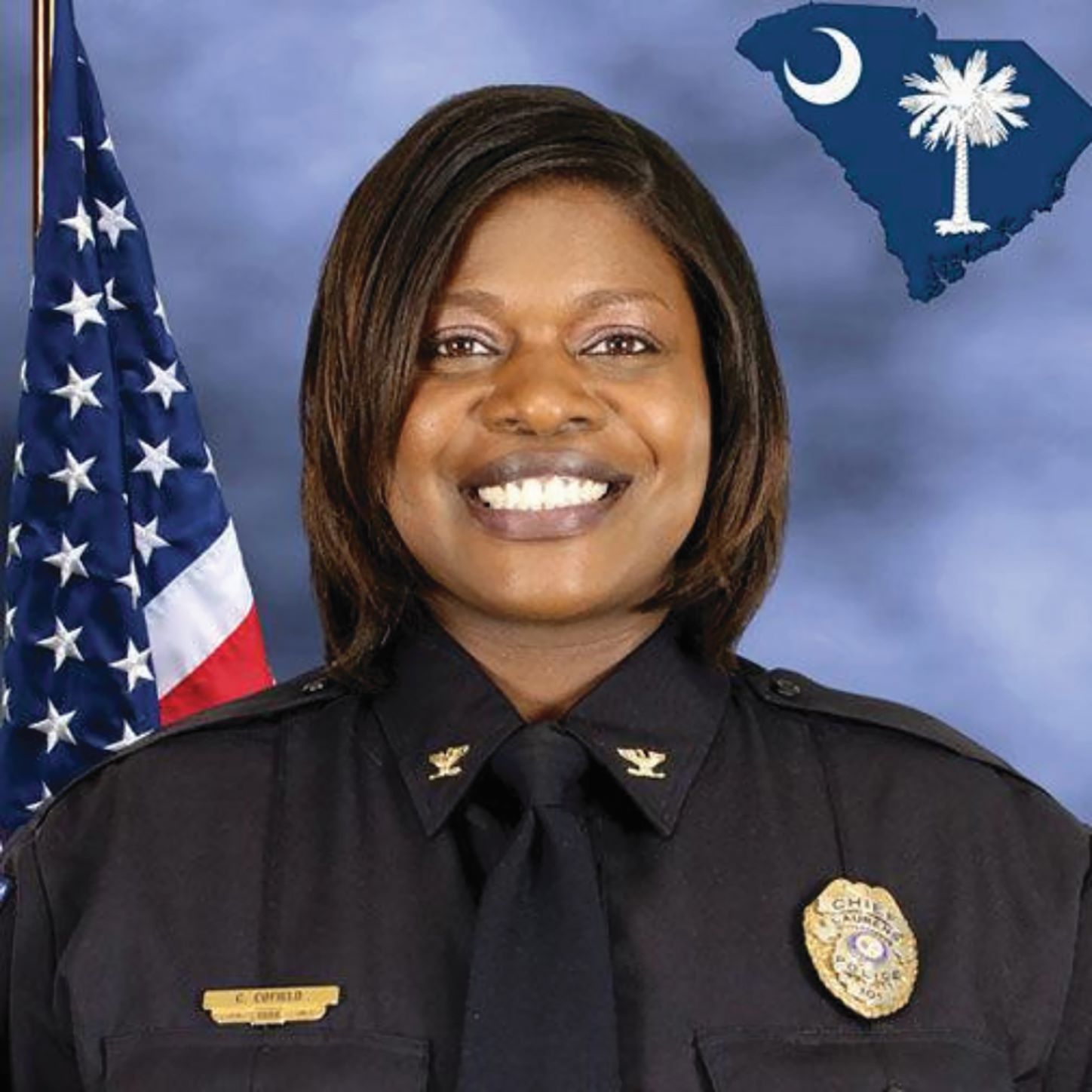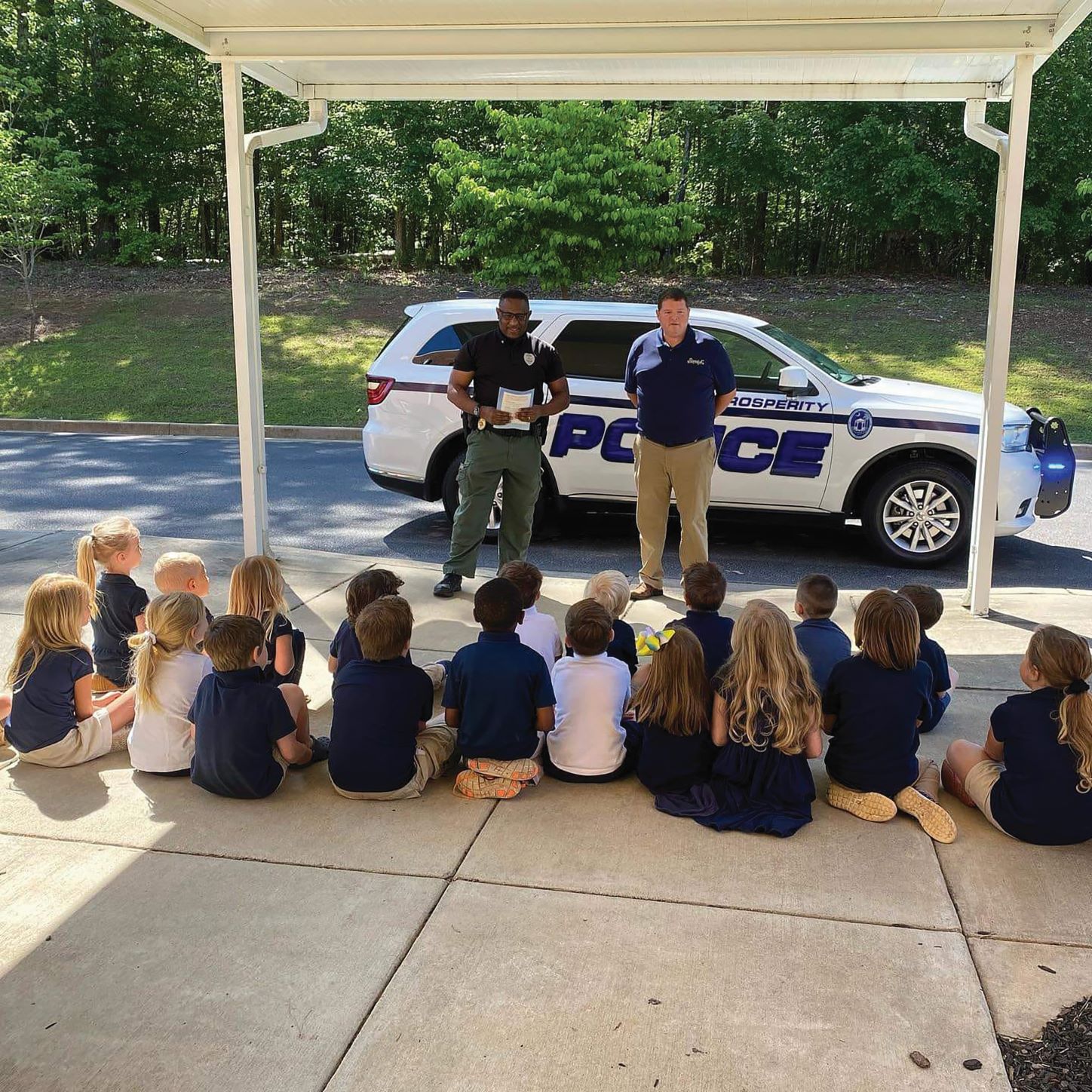As cities and towns evolve, so do modern-day policing and law enforcement. To oversee dynamic shifts in public safety, police chiefs serve a critical role, directing the day-to-day operations, recruiting, retaining, and training officers, and engaging with their respective communities.
On his first day on the job as the new chief of police of the City of Cayce, Chris Cowan was tasked with the responsibility of creating a new department. Cayce had operated a public safety department combining the police and fire departments for decades, but has now moved to create separate departments for each.

In October 2021, Chris Cowan, Cayce’s new police chief, was sworn in.
Photo: City of Cayce.
Before taking the helm as Cayce’s chief police officer, Cowan spent 29 years serving the Richland County Sheriff’s Department, most recently in the operations division overseeing the specialized units. Cowan credited part of his professional success to having the opportunities to work at the vocational and corporate levels of policing around the world.
Cowan described one of his new challenges as identifying and realigning responsibilities within the police department by creating a new operational capacity, a new culture, and a new strategic plan. One way to achieve “focused policing,” he said, is to reengage the community by way of what he called the “three C’s:” community from the commercial side, community from the clerical side, and community from the residential side.
Cowan emphasized the importance of focusing on these communities independently. He said he is looking to take the talent that is within the Cayce police department, bring them together as a team, and then providing the community with what it wants in terms of service.
Another key to his success, he said, has been the relationships he has had at the local, state, and federal levels. These relationships have allowed him to implement leadership training at the command level, mid-level and beginning level, as well as experience to implement implicit and unconscious bias training within the department.
“Cayce is a very diverse community, and we want to understand our community,” he said.
To make this a reality, Cowan said that the department is partnering with local universities to provide training and expand its understanding of the community in which it serves. The department also arranges several social opportunities for community engagement, including a culinary competition, “Cooking with the Chief,” with the Lexington School District 2 Innovation Center culinary program. Engagement with the community has proven to be a recipe for success for the City of Cayce.
In the City of Laurens, Chief of Police Chrissie Cofield Latimore faces similar challenges leading her team of approximately 28 officers.
Latimore, currently working on her doctorate, said that her master’s degree in criminal justice with an emphasis on command-level and executive-level training was instrumental to her progression through the ranks of law enforcement. After being diagnosed with lupus in 2001 while in her mid-20’s, she knew that she had to come up with a plan. That’s when Latimore decided to pursue the educational component of her career, which she said opened doors for her as a leader.

Laurens Police Chief Chrissie Cofield Latimore currently serves as president
of the SC Police Chiefs Association. Photo: City of Laurens.
The 21-year veteran with the Laurens Police Department also served one year with SC Law Enforcement Division and is the first African American police chief and first female police chief in Laurens County. In addition to her department responsibilities, Latimore was recently elected as president of the South Carolina Police Chiefs Association.
Since stepping into the command position in 2018, Latimore said that hiring, training, and retaining of officers have been a revolving challenge. Vetting candidates has also been challenging as officers have to go through many psychological evaluations and assessments, as well as a physical fitness test. Training is critical, from the bottom to the top, she said, whether it be implicit bias training or deescalation.
“The more we learn who we are, the more we understand ourselves,” said Latimore.
Community service and engagement are equally important for her department.
“That’s why we’re here; to be of service to our community,” she said. On leadership, Latimore added that it is more than just telling people what to do. “You have to be a server to the people that you are leading as well as to the community that you swore to serve and protect.”
Chief Wesley Palmore oversees the Prosperity Police Department in Newberry County.
Palmore has had extensive leadership training while in the military, first joining the National Guard while in high school and serving 27 years in the armed services. Palmore entered into law enforcement in 1992 with the Newberry County Sheriff’s Office. His career path led him to the City of Columbia’s police department, where he served for three years, before returning to the Newberry County Sheriff’s Office to become a school resource officer, a position he would hold for over 20 years. After being promoted to lieutenant, Palmore then assumed the role of Prosperity’s police chief.
Recruiting officers is an ongoing problem, as most departments struggle with competing against one another for candidates. The Town of Prosperity, Palmore said that his department has been fortunate to retain its officers, working with the town council to get them pay raises, equipment upgrades, and to administer basic and advanced training.

Prosperity Police Chief Wesley Palmore, at left, focuses on community
engagement activities. Photo: Town of Prosperity.
engagement activities. Photo: Town of Prosperity.
“The town council has been very supportive,” he said, adding that they have been quick to address the department’s needs.
Vetting and training are crucial to the application process. Palmore emphasized how important the vetting system is in hiring qualified candidates for law enforcement. Psychological assessments, physical assessments, background checks, reference checks and even social media checks all play a vital role in assessing candidates. Training is ongoing, led by an in-house training officer. Additional training is offered through partnerships with larger departments.
To address public safety issues, Palmore promotes community policing. The department achieves this through various community engagement activities such as festivals and other partnerships like National Night Out and the Chapin “We Care” food pantry.
“We appreciate the support that we get from the community and from the [town] council; we’re looking forward to continuing our partnership with our citizens and our community.”
A day in the life of a police chief is a demanding — yet rewarding — position that requires leadership, tenacity, and resilience to selflessly serve the diverse communities in which the department operates.
